
Is Your FI Behind on TPRM? Benchmark Your Program Against Peers
Ncontracts’ 2025 TPRM Survey (TPRM) reveals how financial institutions manage vendor risk. Check out the benchmarks and see how your FI measures up.

Prudent Risk Management Is About Clarity, Not Caution
Learn how strategic risk management can help your financial institution turn risks into strategic opportunities.

April 2025 Regulatory Update: A Blizzard of Executive Orders, Agency Actions & Compliance Deadlines
Regulatory compliance experts break down March 2025’s regulatory news and insights including executive orders, rescinded and delayed rules, and compliance …

Enforcement Actions Roundup: March 2025
Welcome to the April edition of our Enforcement Actions Roundup, a monthly summary where our regulatory experts break down last month’s enforcement actions…

How to Keep Up with State Regulations
Stay updated on state regulations impacting financial institutions and how to mitigate emerging risks to strengthen your compliance program.

Ncontracts Releases 2025 Third-Party Risk Management Survey: Trends & Insights for Financial Institutions
The new survey reveals that 73% of institutions have two or fewer full-time employees managing vendor risk, despite half overseeing 300+ vendors.

What Are First, Second, Third, Fourth, Fifth, and Nth-Party Risks?
Learn about first, second, third, fourth, fifth, and nth parties and the risks they may pose to your financial institution.

What Investment Advisers Must Know About FinCEN’s AML/CFT Requirements
Learn how to comply with FinCEN’s new AML and CFT requirements for investment advisers and wealth management firms.

TPRM 101: What are Audit Rights?
Does your financial institution have permission to audit vendors? Learn best practices for implementing audit rights to improve your third-party relationsh…

Your Ncontracts Tools Got an Update with New Compliance & Risk Content
Stay up to date with the latest product content updates designed to help you work smarter, stay compliant, and make informed decisions.

From Blueprint to Practice: 5 Tips for Implementing Sample Policies
Learn best practices for implementing sample policies simply and effectively at your financial institution.

Ncontracts Launches Enhanced TPRM Control Assessments to Transform Third-Party Risk Management
The TPRM Control Assessments are designed to elevate the due diligence process by providing in-depth, risk-based evaluations of vendor safeguards.

RTO vs. RPO for Business Continuity: What’s the Difference?
Learn the differences between RTO and RPO and how to incorporate these metrics into your financial institution's business continuity management.

Ncontracts Named Top Workplace by USA Today for Third Consecutive Year
Ncontracts has been named a USA Today 2025 Top Workplace for the third year in a row.

A Guide to Operational Resilience for Financial Institutions
Learn about operational resilience and how your financial institution can overcome disruption to grow as an organization.

Enforcement Actions Roundup: February 2025
Welcome to the February Enforcement Actions Roundup, a monthly post where our regulatory experts review recent enforcement actions.

Wealth Management Enforcement Action Roundup: January & February 2025
Learn about the latest SEC enforcement actions in our Wealth Management Enforcement Action Roundup.

March 2025 Regulatory Update: 1071, CFPB overdraft rule, and enforcement trends
Listen to our March Regulatory Update as our experts break down the latest developments in regulation, enforcement, and litigation.
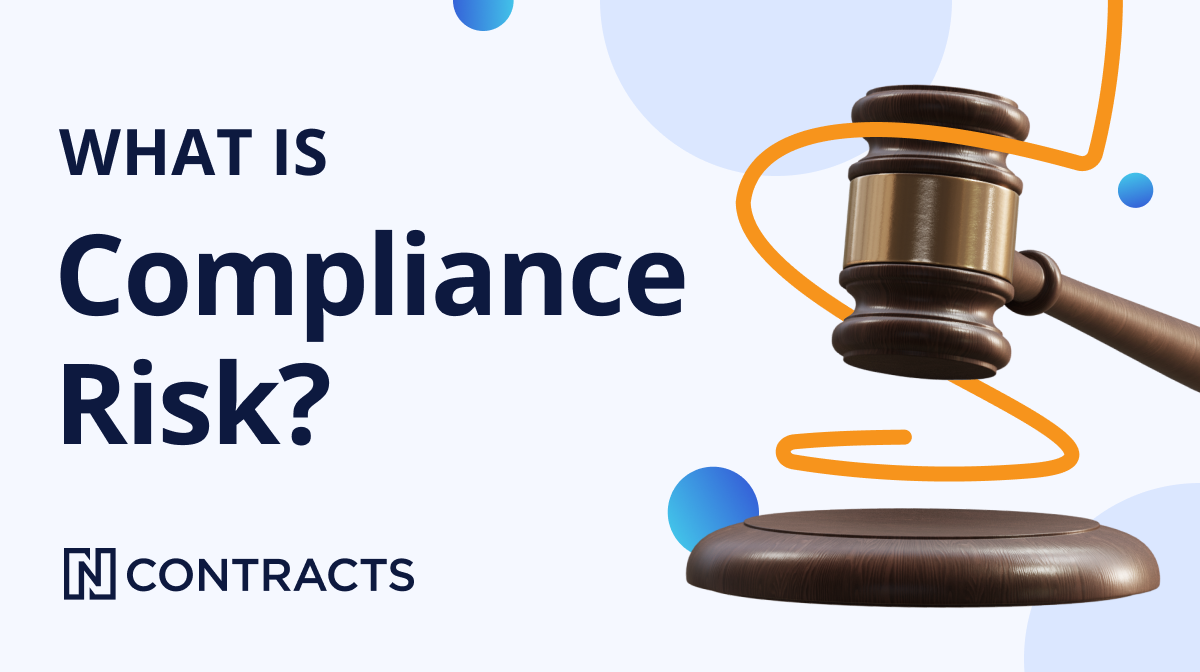
What Is Compliance Risk?
Explore rising compliance risk concerns for financial institutions and how to navigate evolving compliance requirements.

How to Optimize Your Financial Institution’s Policy Development Process
Use these best practices to maximize your financial institution’s policy development process and turn challenges into opportunities.

Enforcement Actions Roundup: January 2025
Stay ahead of regulatory risks with our monthly Enforcement Actions Roundup—tracking trends, takeaways, and compliance insights to keep institutions safe.

What is Business Continuity for Financial Institutions?
Learn how your financial institution can better manage business continuity and mitigate risks.

10 Best Practices for a Better Lending Compliance Program in 2025
How can institutions enhance lending compliance management in a complex regulatory environment? Here are best practices for 2025 and beyond.

Policy Management Pain? Here’s How Financial Institutions Can Fix It
Transform your institution's policy management with tips to adapt to change, stay compliant, and streamline processes without overextending your resources.…
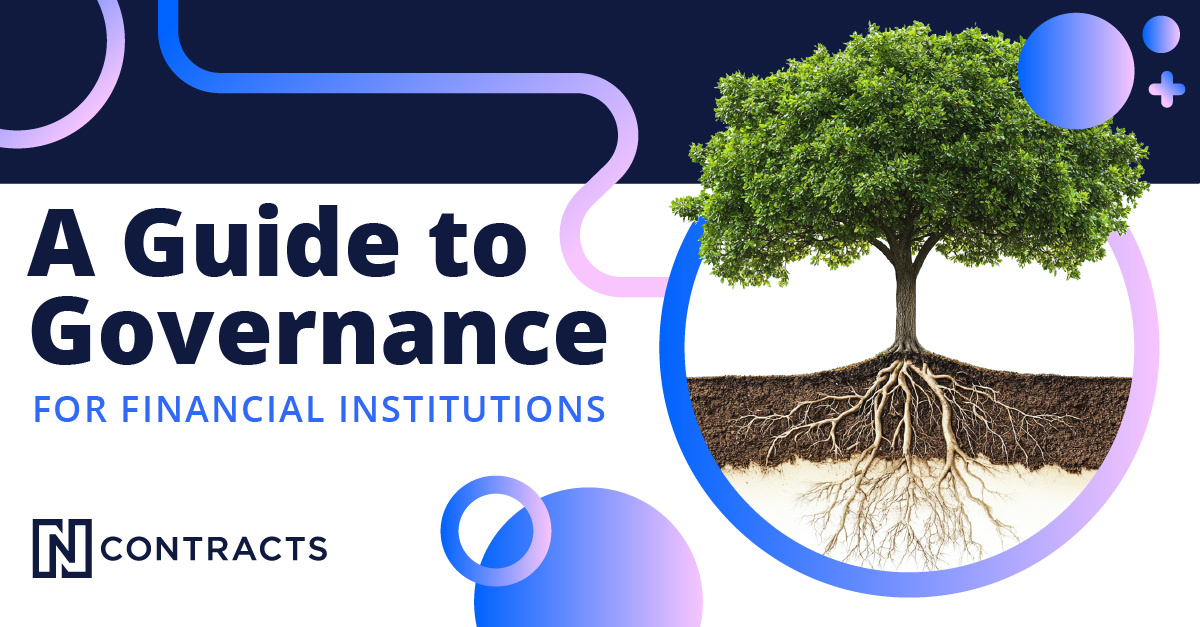
A Guide to Governance for Financial Institutions
Governance is more than following regulations. Learn about the strategic opportunities a strong governance framework can give your institution.

Emerging Risks in the Securities Industry 2025
Financial advisors and wealth managers are feeling heighted compliance pressure. Here are the emerging risks to know about in 2025.
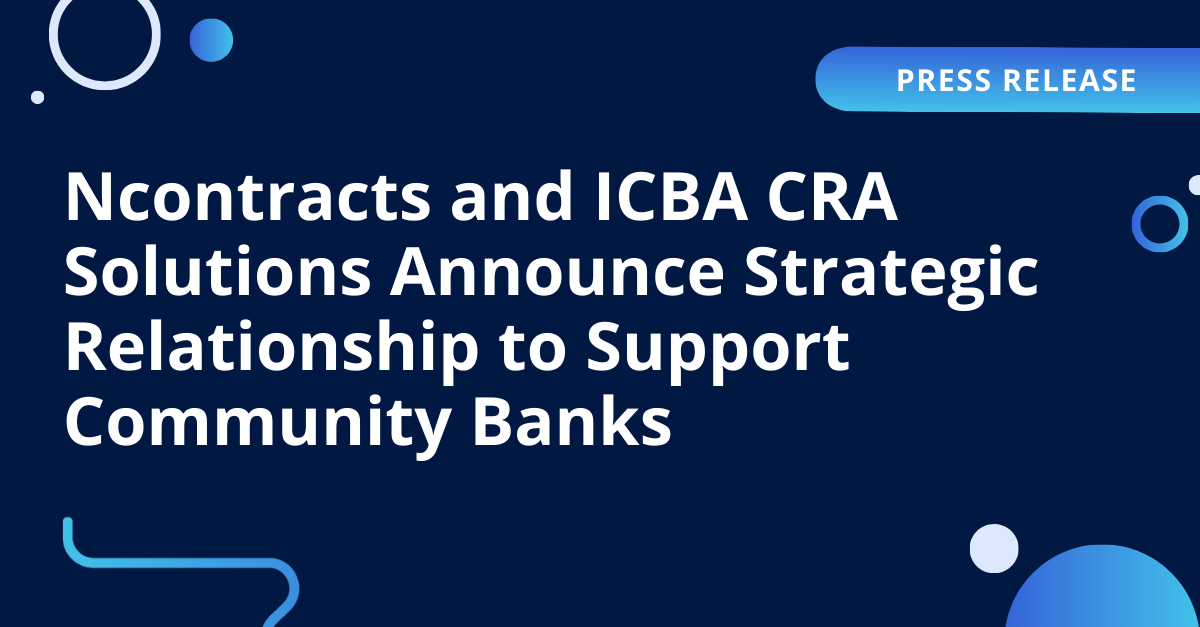
Ncontracts and ICBA CRA Solutions Announce Strategic Relationship to Support Community Banks
Ncontracts and ICBA CRA Solutions have announced a new strategic relationship to help community banks meet Community Reinvestment Act requirements.
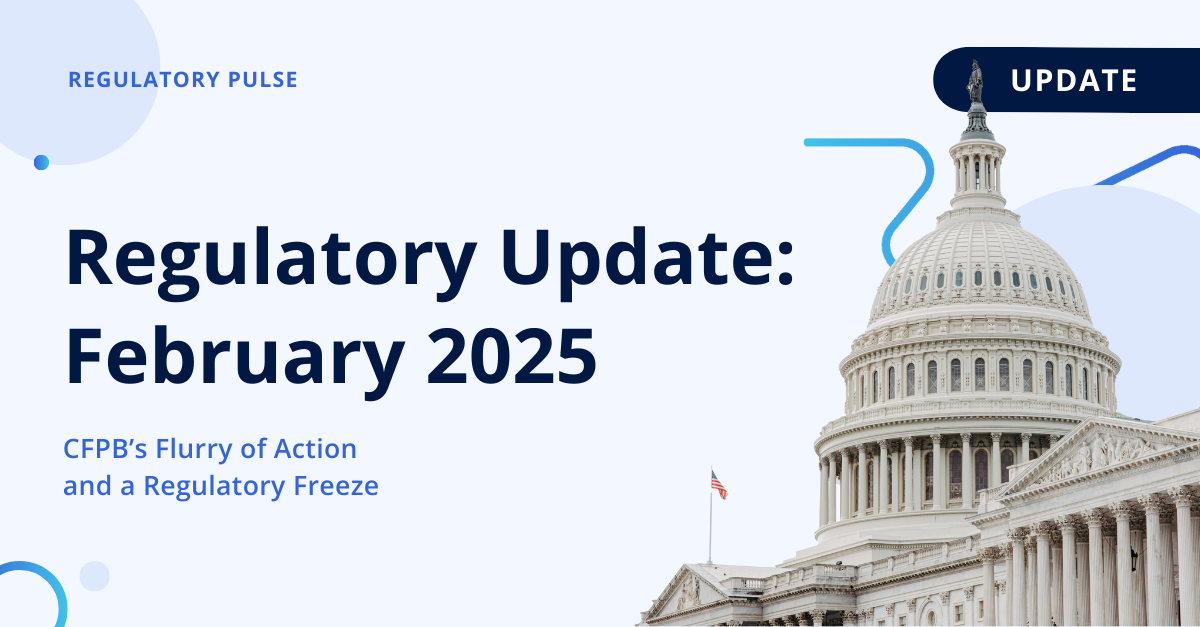
February Update: CFPB’s flurry of action and a regulatory freeze
Ncontracts compliance experts update financial institutions on the latest regulatory news and trends, including the CFPB’s last minute activity and Preside…
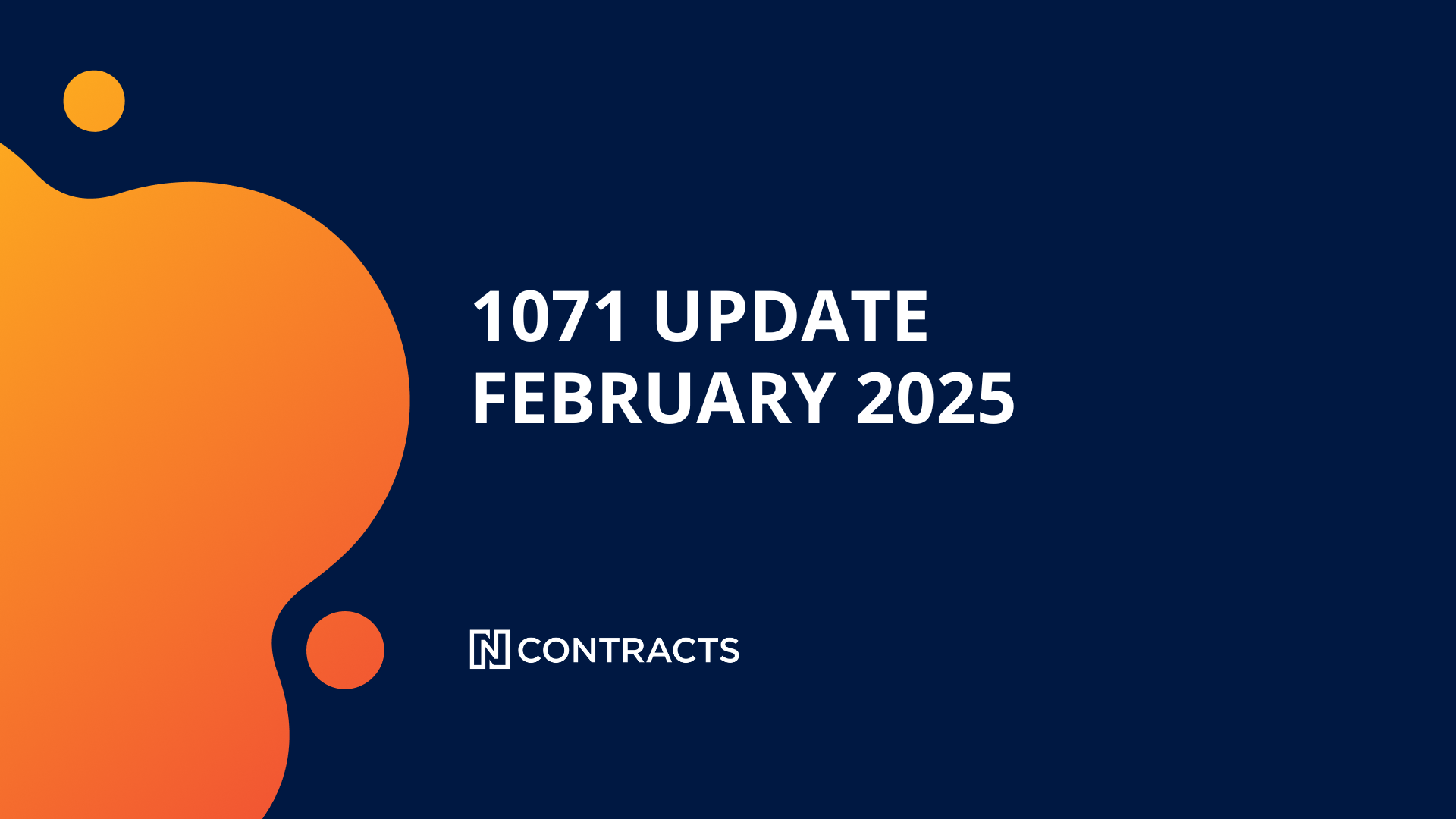
1071 Update – February 2025
The latest 1071 compliance updates, news, and analysis for financial institutions and small business lenders covered under the CFPB’s Section 1071 rule.
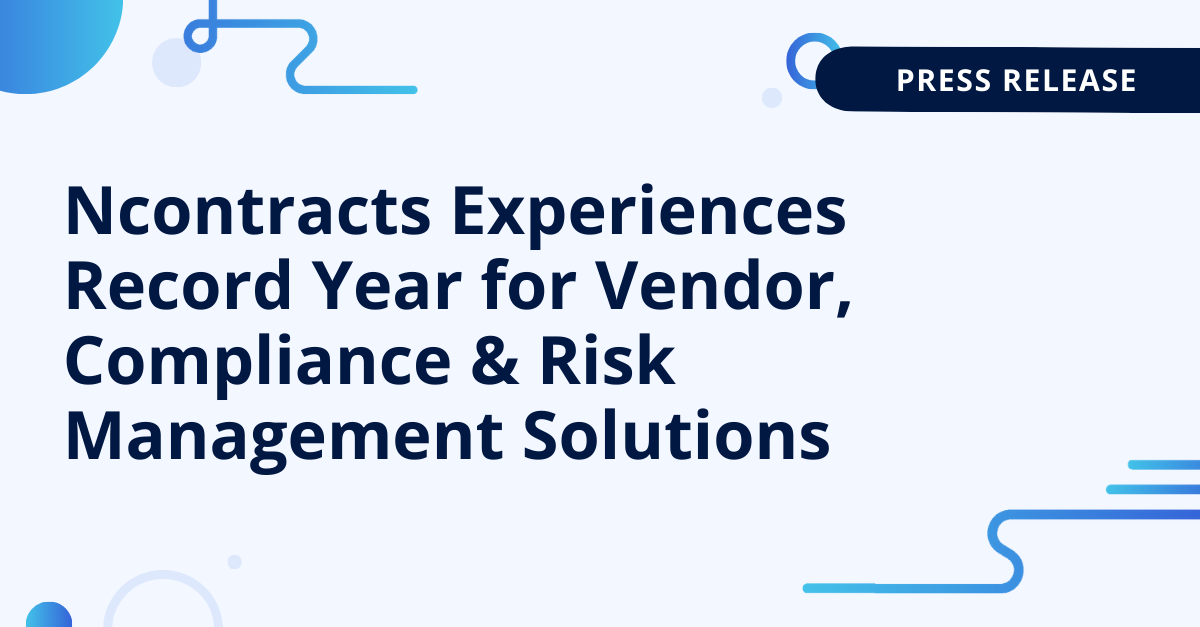
Ncontracts Experiences Another Record Year as Demand for Vendor, Compliance & Risk Management Solutions Accelerates
Ncontracts realized record growth last year amid increasing demand for its risk and compliance management software.